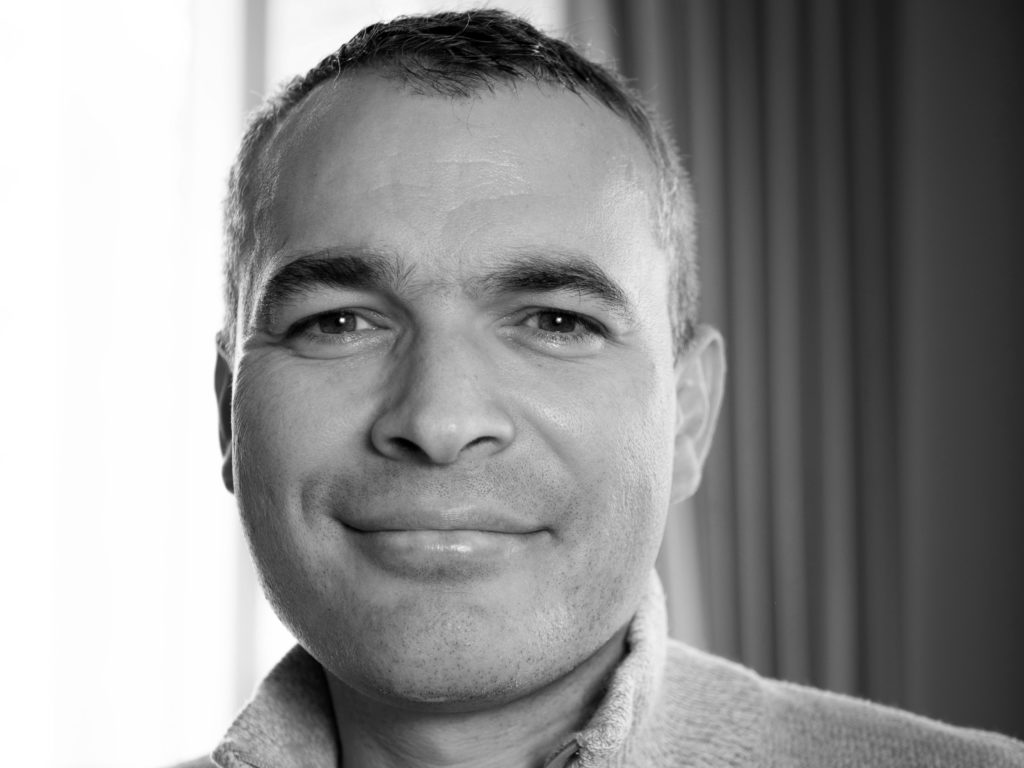2020 SABA Grant Reports

The Society for the Advancement of Behavior Analysis (SABA) awarded several grants in 2020. The following articles are summaries of the reports submitted by the awardees.
Master’s Thesis Grants (Basic): Discriminative Stimulus Effects of Cannabidiol (CBD) Oil
By Rebecca Caughron Chalmé

Rebecca Caughron Chalmé is a doctoral student at West Virginia University (WVU), working in the behavioral pharmacology laboratory under the supervision of Dr. Karen G. Anderson. This SABA grant will support her master’s thesis research, which is designed to evaluate interoceptive discriminative-stimulus properties of cannabidiol (CBD) oil. CBD is touted as a cure-all for a variety of disorders, including anxiety. Some websites and retailers go as far as to suggest that CBD could function as an anxiolytic drug in place of more traditional medications like benzodiazepines; however, the suitability of CBD as a substitute for benzodiazepines is unknown.
In the study the grant will support, before each training session rats are given either saline or chlordiazepoxide (CDP), a benzodiazepine drug, and then placed in a two-lever operant-conditioning chamber with responding on one (injection-appropriate) lever reinforced and responding on the alternate lever extinguished. For example, on CDP days, responding on one lever produces food, whereas on saline days, responses on the opposing lever produce food. Once responding occurs consistently on the injection-appropriate lever across sessions, various doses of CBD are administered in place of saline or CDP, and generalization tests occur in extinction. The number of responses on the CDP-appropriate lever in a test session provides information about whether CBD and CDP share interoceptive discriminative-stimulus properties, and thus may clarify CBD’s role as a potential anxiolytic drug.
In addition to research, Rebecca is passionate about undergraduate instruction. She has taught Introduction to Psychology and the Behavior Principles laboratory course at WVU, and has advised incoming freshmen in the psychology major. Rebecca hopes to earn her Ph.D. and continue her academic career in research and teaching at a university.
Rebecca would like to thank SABA for supporting her master’s thesis research. Additionally, she would like to thank Dr. Anderson, her WVU labmates and colleagues, and her husband for their support during her doctoral training at WVU.
Master’s Thesis Grants (Basic): Resurgence as Choice (RaC) and Response Effort: An Interdisciplinary Collaboration Assessing Resurgence in Humans
By Carolyn Ritchey

Carolyn Ritchey is a graduate student working in the Translational and Applied Behavioral Science Lab at Auburn University under the direction of Dr. Chris Podlesnik. Her thesis project will introduce a novel and interdisciplinary laboratory procedure for directly examining the role of response effort in resurgence. Resurgence is a laboratory model of how relapse occurs following successful treatment with differential reinforcement-based procedures, which are highly effective in achieving initial reductions in problem behavior such as aggression or self-injury, but these behaviors are susceptible to resurgence during changes in treatment conditions. For example, resurgence occurs when reducing or eliminating reinforcement for an alternative response (e.g., asking for a break) increases an extinguished target response (e.g., hitting to escape task demands).
Problem behavior and alternative responses often differ in response effort (e.g., hitting may be more effortful than requesting a break). The proposed project will incorporate techniques and equipment from a kinesiology laboratory to manipulate individuals’ response effort in a choice task. University students will serve as participants, responding on handheld force transducers. The force (effort) required to produce points exchangeable for monetary reinforcers will differ across response options. Force output and variability of force produced during contingency changes (simulating changes in treatment conditions) will be examined. The project includes two experiments, each using a group design and multilevel modeling techniques to characterize the degree to which the group means apply to individuals.
Specific Aims
(1) Reveal the role of effort in resurgence of a target response following removal of all reinforcers (Experiment 1). We hypothesize that greater effort requirements for a target response versus an alternative will decrease the magnitude of resurgence of the target response following removal of reinforcers for both responses.
(2) Reveal the role of effort in resurgence of a target response during continued treatment (Experiment 2). It is often desirable to increase the complexity of an alternative response following successful treatment (e.g., requiring “Can I have a break, please?” instead of “break”). We hypothesize that increasing effort for an alternative response will increase the magnitude of resurgence of the target response despite unchanged alternative reinforcement contingencies.
Doctoral Dissertation Grants (Applied): Assessing the Effectiveness of Nicotine Replacement Therapy and Contingency Management for Cessation of Smoking in Black/African Americans
By Sydney Batchelder

Sydney R. Batchelder is a Ph.D. student at the University of North Carolina Wilmington (UNCW) studying applied behavior analysis. She has a bachelor of science in psychology with a concentration in behavior analysis from Eastern Connecticut State University, where she graduated with university and departmental honors. Sydney received her master of arts in applied behavior analysis in December 2019 from UNCW, and she currently works with Dr. Wendy Donlin Washington researching interventions to treat substance use in at-risk populations.
Her dissertation focuses on smoking cessation in African American populations, who are at higher risk for smoking-related illnesses than the general population. African American individuals are also less likely to use nicotine replacement therapy, and one aim of this study is to understand whether there are cultural reasons that make nicotine replacement less effective or appealing. A second aim is to expand research on contingency management, an evidence-based practice for drug cessation, as there is little research on its effectiveness across ethnic groups.
The study will use a two-branch multiple-baseline across participants design. One branch will receive both contingency management monitored twice daily and nicotine replacement, and the other will receive contingency management and a placebo. The treatment will last three weeks, and a one-month follow-up will provide information about maintenance effects of the intervention after its termination. Sydney and her colleagues at UNCW will begin recruitment and data collection at the start of the fall 2020 semester and will complete the project by the end of the spring 2021 semester. She hopes this study will gather preliminary data to support her line of research focused on this understudied and at-risk population.
Doctoral Dissertation Grants (Basic): Understanding Cultural Change Through Turn-Based Matching-to-Sample Procedures
By Will Fleming

As a graduate student at the University of Nevada, Reno under the advisement of Dr. Linda J. Hayes, Will Fleming conducts experimental and theoretical work on cultural behavior, verbal behavior, and behavioral economics from both operant and interbehavioral perspectives.
Will’s dissertation will use a turn-based matching-to-sample procedure (TBMTS) to investigate the relevance of verbal behavior in establishing cultural behavior across a series of experiments. Similar to studies on non-human reference by Skinner, Savage-Rumbaugh, and colleagues, TBMTS involves trials in which (1) one individual selects a stimulus from Set A in the presence of a stimulus from Set B, (2) a second individual selects a stimulus from Set B in the presence of that selected by the first, and (3) both individuals receive the same points simultaneously. Individuals take turns selecting first and second across trials. When communication is restricted and when the stimuli do not have conventional functions prior to experimentation, TBMTS is especially useful for investigating metacontingent control over interlocking behavioral contingencies (IBCs) observed when correspondence (second player selecting the sample for the first) and non-correspondence (second player not selecting the sample for the first) are reinforced. Under conditions that favor correspondence, participants demonstrate shared and symmetrical correspondence. After establishing steady patterns, one participant’s responding generally does not change as their partner’s does when non-correspondence is reinforced.
Three experiments will be conducted to target possible verbal factors contributing to both the establishment of IBCs and which dyad member demonstrates flexible response patterns. In Experiment 1, dyads will receive instructions in which reinforcement contingencies are more or less completely described in either referential or non-referential terms. In Experiment 2, the degree and duration to which patterns of correspondence and non-correspondence are established will be measured when the number of sample and comparison stimuli are systematically manipulated. In Experiment 3, dyads composed of children with differential verbal abilities, measured by the PEAK Equivalence Pre-Assessment, will determine the relevance of verbal repertoire complexity on the establishment of cultural behavior. Together these experiments will inform relations between cultural behavior and verbal processes and suggest avenues by which cultural behavior can be altered.
International Development Grants: ProgressCharter App
By Guy Bruce

Dr. Bruce thanks the SABA Board of Directors for awarding him a 2020 International Development Grant. He will use the money to speed completion of ProgressCharter, a web-mobile application that will make it easy for schools to use their EARS to change how people work together, so that all students can make efficient progress toward their educational goals.
EARS stands for Evaluate student progress; Analyze causes of staff performance problems; Recommend changes in staff resources, training, and management; and Solve performance problems by designing and implementing recommended solutions. EARS is a pragmatic change process, an application of behavior analysis to engineer the organizational performance of schools.
Dr. Bruce has partnered with a business leader and a special education professor in Chile to provide ProgressCharter to Spanish-speaking schools in Latin America, and to English-speaking schools throughout the world. Beta testers will have a choice of English or Spanish. Dr. Bruce will add other languages based on demand. If your school is interested in participating in a ProgressCharter beta test, you may reach Dr. Bruce at 309-303-1527 or guybruce@appealingsolutions.com.
International Development Grants: Behavior Analysis Dissemination in Hungary
By Alexandra Herman

Alexandra Herman graduated with an MSc in psychology from Eötvös Loránd University in Hungary in 2009. She started working as an applied behavior analysis (ABA) therapist the same year, and has been working in the field ever since. She graduated with a distinction in ABA from Bangor University in 2018, receiving her second MSc, then became a Board Certified Behavior Analyst that year. Alexandra spent more than four years in the UK as an ABA therapist and consultant working mainly with children with ASD and language impairment in home, school, and community settings.
Her main areas of expertise are early intervention, therapist and teacher training, and, most importantly, dissemination of the science of behavior analysis in her home country of Hungary.
Hungary currently has four board certified behavior analysts . Alexandra has been working with her colleagues on dissemination for the past 10 years, creating an ABA therapy center for children with autism in Budapest; delivering trainings, consultation, and workshops for parents; supporting mainstream schools in integrating children with special educational needs; and presenting at conferences throughout the country.
Hungarian BCBAs agree that delivering training at a prestigious university and developing professional and ethical national standards are essential steps in further dissemination. Therefore, the International Development Grant will be used to support (1) the first ABA course sequence in Hungary, at Eötvös Loránd University (Alexandra is the coordinator for this VCS, which was approved in October 2019) and (2) creation of the Hungarian Association for Behavior Analysis, a national organization for behavior analysts.
With the help of this grant, an online campaign will be established to advertise the VCS coursework and disseminate the science of behavior analysis, as well as to support Hungarian BCBAs—who have already laid the foundation for the Hungarian Association for Behavior Analysis (including practice guidelines and a mission statement)—to take the final steps in its establishment.
International Development Grants: Formation of the Pan-African Association for Behavior Analysis
By Ashley Knochel

This International Development Grant will be used to assist in the formation of the Pan-African Association for Behavior Analysis (PAABA). In light of the recent Behavior Analyst Certification Board changes regarding international focus, there is a need to develop a credentialing body designed to meet the unique demands for behavior analytic services across the African continent. In collaboration with Dr. Jane Paul, BCBA-D, Meryem Ouahmane, and the Pan-African Congress on Autism, PAABA will foster a continental platform of advocacy and support by providing quality training standards to encourage effective and culturally responsive dissemination of applied behavior analytic services across Africa. This will include formulating standards of professional conduct, creating and maintaining a registry of certified members, and supporting individual African nations interested in developing country-specific licensure.
Ashley Knochel is a recent graduate of the ABA master’s program at the University of South Florida and one of three BCBAs in Kenya. She is currently a first-year doctoral student in the ABA program at the Chicago School of Professional Psychology. Ashley is passionate about culturally responsive dissemination and enhancing the social validity and sustainability of behavior analytic practice in African settings.
International Development Grants: Nurturing Brightness Network
By Flora Moura Lorenzo

Contexts with high levels of inequality set strong concurrent contingencies for school attendance for children from vulnerable families. As the informal economy and early labor are used as means to address the need for immediate income, school dropout prevents around 40% of Brazilian students from finishing basic education. Hence, in the pursuit of equity, schools in Brazil could benefit from strategies that support children’s learning and academic success.
The SABA International Development Grant will assist in the development of the Nurturing Brightness Network, an online community for disseminating behavior analytic tools for classroom management based in the literature of nurturing. Application in primary schools has shown systematic improvement in pupils’ social interactions and basic academic repertoires in both the short and long term. By acquiring the ability to focus in a safe and collaborative environment, children from all socioeconomic backgrounds can find they are fully capable of learning. Many children from low-income families in Brazil have not had this experience, nor have their relatives.
The online platform will provide guidance for teachers, principals, healthcare workers, and policy makers from different educational systems across the country to connect and collaborate toward the implementation of nurturing strategies in their workplaces. Content will be available in modularized videos and texts grounded in scientific evidence, interactive forums, interviews with experts, and webinars. Participants will be encouraged to support one another while receiving technical input and feedback for their own projects. Dissemination across public schools is expected through social contagion among professionals within and between municipalities.
Flora Moura Lorenzo, doctoral candidate at the University of Brasília, conceptualized the project and will coordinate it. Professionals with backgrounds in other fields key to the promotion of nurturing schools were invited to participate. Aline Godoy Vieira, doctoral candidate at São Paulo University; Darlene Cardoso Ferreira, MSc; Débora Pereira, MSc; and Lorena Araújo, MSc, will collaborate across applied behavior analysis, emancipatory education, and collective health. The initiative is nonprofit and has no affiliation with any particular organization.
International Development Grants: International Online Museum on Behavioral Psychology and Neuroscience
By Luiz Henrique Santana

Along with support from the Department of Experimental Psychology at the University of São Paulo and a 2019 Federation of European Neuroscience Societies History Online Project Award, this SABA International Development Grant will assist in the development of the International Online Museum on Behavioral Psychology and Neuroscience to inform the public of the history of experimental behavior analysis using a gamified approach. This project offers a tool for systematic replication of classical experiments via a server for open/citizen science that may be used for educational and scientific purposes.
Users will be able to explore the museum and play an array of games based on experiments in behavior analysis, in order to learn about the science behind each experiment. The museum will also collect users’ performance data to build an international database for the replication of classic experiments in behavioral psychology and behavior analysis. Science in the 21st century requires a multi-level approach to train emerging researchers in its history and to encourage them to build new pathways based on solid evidence from the past.
Luiz Henrique Santana, MSc, is a Ph.D. candidate in experimental psychology and a research assistant in the behavioral investigations lab with Dr. Miriam Garcia-Mijares at the University of São Paulo, as well as a visiting graduate researcher in the comparative psychobiology lab at UCLA with Dr. Aaron Blaisdell.
Sidney W. & Janet R. Bijou Grants: From Pointing to Naming
By Crystal Fernandez

Crystal Fernandez is a doctoral student at the University of North Texas studying under the mentorship of Dr. Jesús Rosales-Ruiz. Prior to beginning her doctoral program, she worked with children with autism as a public school teacher and as a BCBA in a clinical setting. Her research interests include the development of behavior and its stimulus control, practitioner and parent training, and increasing access to services for traditionally underserved populations. The Bijou Grant will support her project examining the role of pointing in the development of bidirectional naming for children with autism.
Bidirectional naming, or the ability to learn names of items without direct instruction, is considered a developmental cusp. Bidirectional naming in itself requires many prerequisite skills, and thus programming for this repertoire typically occurs long after a child begins intervention. The delay is due to the assumption that a particular degree of listener and speaker repertoires is necessary before the two repertoires can join. Although many prerequisite skills have been identified, no studies have examined the role of pointing in the development of bidirectional naming.
Current behavior analytic procedures typically describe pointing in terms of a listener response or in terms of a request. In contrast, Horne and Lowe (1996) describe a parent-child interaction in which a child initiates a verbal episode through pointing. In this description, the child’s pointing is indicative of speaker behavior to begin a social interaction. This is supported by child development research that suggests pointing is a way for children to begin verbal interactions with others, and thus is an important milestone in language development (Goldin-Meadow, 2007; Colonnesi, Stams, Koster, & Noom, 2010).
The current study asks if teaching pointing as a speaker can accelerate the teaching of bidirectional naming to children who begin with fewer prerequisite skills. The incidental learning of new words will be evaluated within the instructional setting and within the natural environment. Participants will be recruited across three groups with various levels of speaker and listener repertoires. This study will have implications for designing teaching protocols, particularly for children who do not make adequate progress with established protocols.
Sidney W. & Janet R. Bijou Grants: Establishing Generalized Equivalence Class Performance Utilizing Tact Training and Training Intraverbal Bidirectional Naming: a Multiple Study Replication and Extension With Participants of Various Age Ranges and Varied Levels of Verbal Skills
By Rebekah Lee

Rebekah Lee received her MSP in speech-language pathology from the University of South Carolina and her MEd in applied behavior analysis and autism from Endicott College. As a dually certified professional, SLP and BCBA, she is particularly interested in verbal behavior as it relates to language learning and problem solving. She believes that in contrast to linguistic or cognitive theories of language development, the verbal behavior approach allows for a more empirical and systematic analysis. Other research interests include stimulus equivalence, instructional design, and interdisciplinary collaboration.
Rebekah will be completing the study for which the Bijou Grant was awarded as a Ph.D. student in applied behavior analysis at Endicott College under Dr. Mary Jane Weiss. The study will be conducted with students from her professional setting, a school district where she will have access to and a plan for collaboration with other speech-language pathologists, BCBAs, general educators, and special educators.
Rebekah’s project will be a replication and extension of a 2017 study by Jennings and Miguel that used tact training and intraverbal bidirectional naming with college students to establish generalized equivalence class performance. The replication will comprise four experiments in order to investigate bidirectional naming for establishing generalized equivalence classes with four age ranges. Subjects will be 5–10 students in each grade range of K4–2nd, 3rd–5th, 6th–8th, and 9th–12th who are considered typically developing and are not receiving special education services. As a replication and extension study, it will follow the original study’s methods to the extent appropriate based on the participants’ ages and verbal skills. The project goal is to improve clinical/educational practice by providing an understanding of the ways verbal behavior skills contribute to general language acquisition, language learning, concept formation, and problem-solving skills. The Bijou Grant will assist with expenses for skills assessments, session materials, participant motivation, coding and analysis of data, and travel to the ABAI convention for presentation of results.
Public Awareness Grants: ABA Training Program for General Education Teachers
By Frank Cicero

A variety of problem behaviors in general education classrooms are frequently reported. These behaviors disrupt the classroom environment, decrease student achievement, increase teacher stress, and negatively impact teacher retention (Mitchell et al., 2015). General education teachers with knowledge and experience in ABA are better equipped at dealing with disruptive classroom behavior (Young & Martinez, 2016). Unfortunately, data indicate that general education teachers often do not hold to a behavioral explanation of student problem behavior, do not have training in functional behavior assessment and treatment, and feel unprepared to deal with classroom behavior issues (Mitchell et al., 2015; Young & Martinez, 2016). The purpose of the current project is to attempt to mitigate these issues by designing a training program in ABA specifically for general education teachers. The idea for this project grew out of experiences conducting professional development workshops in behavior analysis for public school districts over the past several decades. Although the titles of the workshops are often not specific to special education, administrators usually assign the ABA topics to teachers in special education classrooms, while the general education teachers attend workshops focusing on academics or standardized testing.
The current project was designed by Dr. Frank Cicero of Seton Hall University; several colleagues in the Department of Educational Studies and students in the ABA program will help execute it. The study will attempt to increase the use of ABA techniques by general education teachers through the initiation of a training program designed specifically for general education. Ten general education teachers from two public school districts in New Jersey will be selected to participate in a six-month training program. The program will consist of academic workshops, mock projects, and in-vivo classroom modeling and guidance. The project is seen as a pilot for larger and ongoing partnerships between the university’s ABA program and public school district general education programs. The funding from the SABA grant will be used to provide each teacher with a textbook in ABA, classroom materials to support behavior change plans, and a one-year membership in the New Jersey Association for Behavior Analysis.
Public Awareness Grants: Proactive Strategies for Interacting With Individuals With ASD or Other Intellectual Disabilities During Emergency or Crisis Situations
By Jill Harper

Jill M. Harper, Ph.D., BCBA-D, LABA, is the Senior Director of Professional Development, Clinical Training, and Research at Melmark New England. Dr. Harper has been providing clinical services in the area of behavior disorders for almost 15 years. In addition to her clinical work, she holds an adjunct faculty position at Endicott College and is an active member of the research community, designing and disseminating applied research.
Handling emergency or crisis situations can be a challenge for first responders and other community professionals who encounter people with autism spectrum disorder (ASD) or other intellectual disabilities, as they are often unfamiliar with the unique characteristics presented by these individuals. Building familiarity with such challenging behaviors can lead to more positive, de-escalating approaches and outcomes.
The SABA Public Awareness Grant will support Dr. Harper and the leadership team at Melmark New England in the development and evaluation of educational materials and a training program to teach proactive strategies for interacting with individuals with ASD or other intellectual disabilities during emergency or crisis situations. The curriculum, using behavioral skills training methodology (e.g., Miltenberger, 2003; Parsons, Rollyson, & Reid, 2012; Reid, 2017), will include both knowledge and performance competencies at the initiation of, throughout, and following the training.
Initial implementation will occur through ongoing collaborative relationships with community facilities. Pending the outcome of initial implementation, the training curriculum will be replicated across other organizations. As dissemination of the training curriculum grows, a train-the-trainer model will be developed, during which members of community organizations will be trained to implement the curriculum, collect data, and report all outcome measures with high integrity.
Public Awareness Grants: Embedding Applied Behavior Analysis Principles Into Residential and Juvenile Correctional Facilities
By Kristine Jolivette

This SABA grant will help support the project Embedding Applied Behavior Analysis Principles Into Residential and Juvenile Correctional Facilities, which focuses on creating and disseminating facility-specific content applications to introduce staff to and improve their use of behavior analytic principles and practices, in lieu of punishment and other reactive practices, when working with vulnerable and marginalized youth exhibiting problem behaviors.
Thousands of youth with chronic and intense behavioral challenges are daily served in residential and juvenile corrections facilities, spending the majority of their time with staff who may lack any training related to behavioral principles, and may rely solely on punishment and other reactive strategies to induce (unsuccessfully) behavioral change. We posit that applied behavioral principles can be successfully integrated into the daily operations by these staff and flexibly applied with youth across academic/behavioral/social-emotional domains to increase engagement/achievement and improve outcomes.
We will provide behavioral principles exposure, explicit instruction, and reinforcement with facility context-specific examples through a stakeholder gathering and project website, suitable for use in these applied and authentic settings. The project will have four phases, focused on scalability, sustainability, and replicability:
- Phase 1: Secure stakeholder involvement through our existing network; conduct a needs assessment on behavioral principles; create a list of common challenging youth behaviors/scenarios in these settings; create initial briefs on the principles.
- Phase 2: Interface with stakeholders on rationale for ABA principles within their context; create an initial set of deliverables per feedback; create a sustainability plan.
- Phase 3: Conduct the stakeholder gathering/iterative processes; create website infrastructure; push website live.
- Phase 4: Edit/add deliverables per ongoing website feedback/stakeholder voice; increase public awareness of deliverables; maintain website.
Our core stakeholders are both agency- and facility-level staff in multiple positions and departments from more than five states and eight agencies that serve school-age youth with and at risk for disabilities in residential treatment centers and juvenile justice facilities. The funds from this grant will help offset the housing costs of participants for the stakeholder gathering. This project is jointly led by Drs. Kristine Jolivette, Sara Sanders, and Skip Kumm at the University of Alabama.
Public Awareness Grants: ABA in the Middle of Nowhere
By Anna Young and Cheryl Young-Pelton


According to a 2018 article in Nature magazine, the top three “middle of nowhere” U.S. towns are in the largely rural state of Montana. Residents of rural areas have a significantly diminished likelihood of accessing necessary healthcare services, including ABA. The “ABA in the Middle of Nowhere” campaign aims to capture the attention of legislators, educators, caregivers, parent support groups, and healthcare providers to describe what ABA services can accomplish given current progress in technology, which is making training and behavioral consultation more accessible than ever.
The campaign will include information about how behavior analysis can offer effective, advanced, and respectful approaches to addressing behavioral needs. Its messaging will emphasize the value of informing state legislators about the benefits of behavior analysis so that policies may reflect progress, not barriers to service.
The SABA Public Awareness Grant will support production of a video that will be posted on social media and relevant websites as well as a radio commercial featuring messages from behavior analysts, educators, and service recipients attesting to the effectiveness of ABA. Funds will also be used to design brochures and flyers about ABA services and to host “Coffee With a Behavior Analyst” informational meetings across the state.


